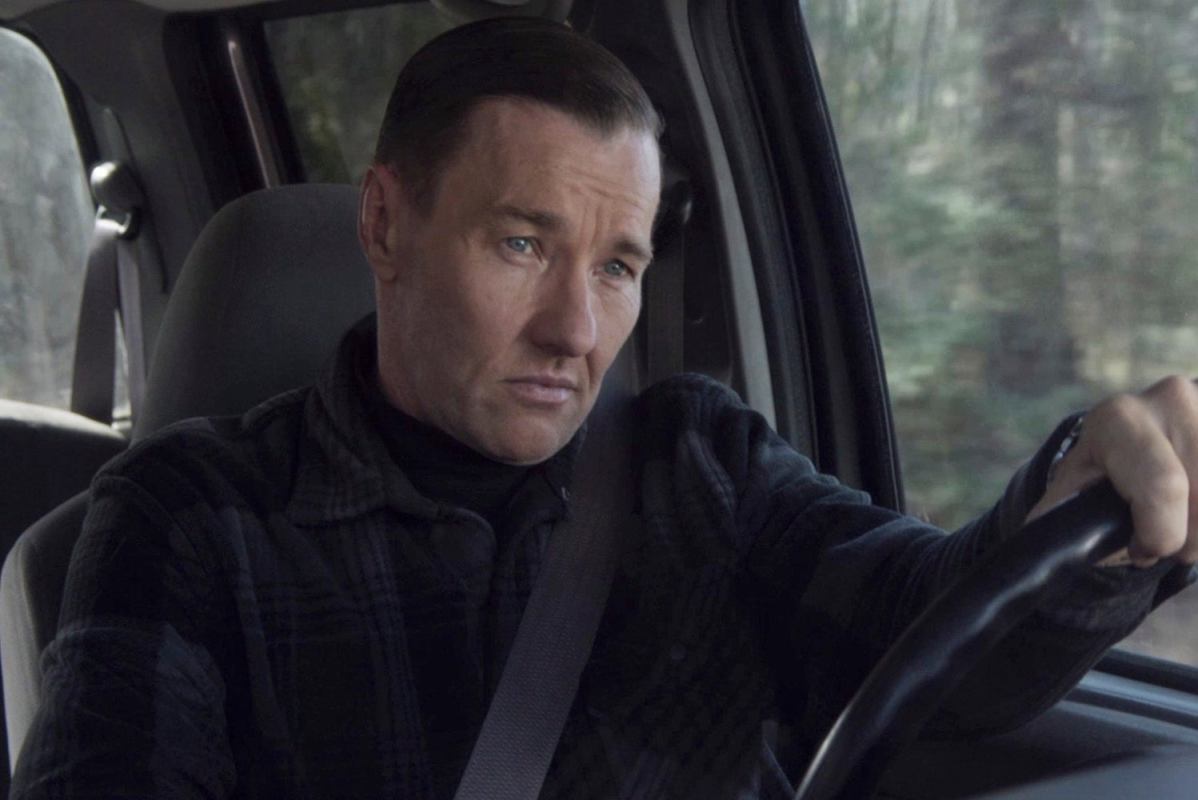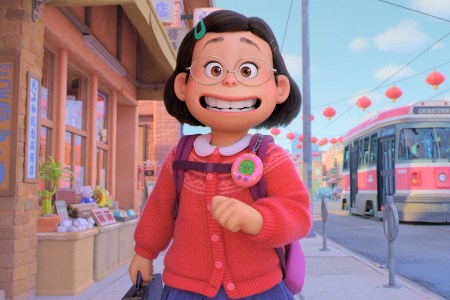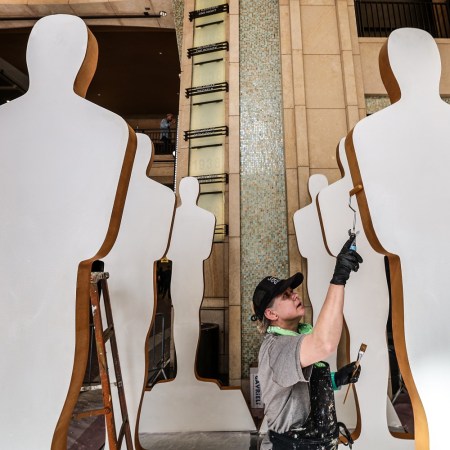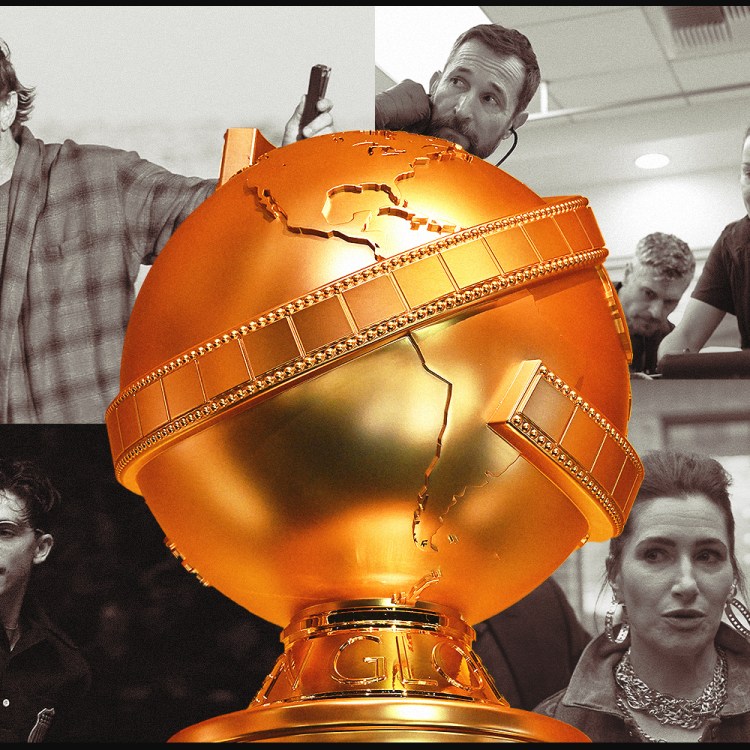“Will God forgive us?” The question posed by Ethan Hawke’s country priest turned incipient eco-terrorist in First Reformed is much on Paul Schrader’s mind these days.
Schrader, raised devoutly religious before a Damascene vision of Bergman’s Through a Glass Darkly converted him to cinema, has always been big on guilt. In films like Hardcore, Cat People, Mishima, The Comfort of Strangers and so on, the writer-director creates an atmosphere of repression and dread that builds, inexorably, to moments of awful, awesome release through sex and violence. But with his last three films — a trilogy comprised of First Reformed, The Card Counter and now The Master Gardener, out May 19 in the United States — he seems to have talked himself back into believing in sin. In each film, Schrader’s protagonist is tormented by his complicity in the crimes of American Empire and seeks redemption through an act of righteous violence and understanding of a woman who sees the unextinguished spark of the divine in him.
In First Reformed, Hawke’s Toller comes, through dialogue with Amanda Seyfried’s activist widower, to believe that the desecration of the Earth, carried out by industrialists including his church’s own patrons and parishioners, is an affront to God. In The Card Counter, Oscar Isaac’s gambler William Tell is plagued by flashbacks to the torture he carried out as an American soldier in Abu Ghraib. In retrospect, given the overarching reckoning of this phase of Schrader’s career, it’s very appropriate that Tell’s salvation comes, as Tiffany Haddish’s love interest, through interracial love. Schrader has been circling progressively closer to home and to America’s original sin; in Master Gardener, the thing for which the titular character requires God’s forgiveness is his past as a white-supremacist murderer.
Joel Edgerton’s Narvel Roth — like Toll, Teller and many of Schrader’s “man in a room” characters going back to Travis Bickle of his breakthrough screenplay Taxi Driver — keeps a diary and narrates the film; he is first glimpsed hunched over his desk, facing away from the camera, scribbling by lamplight. “The formal garden imposes geometric structures on plants,” Roth writes, and applies that discipline to his own life, shaping and taming his natural wildness. His hair is cropped so close that you look at its part and feel the teeth of his comb in your own scalp. He dresses in neutral workwear, allows himself one cigarette a day and sits on his porch in perfect stillness.
The filmmaking is similarly self-contained, with slow fades draining scenes of their volatility before the next one starts. The camera moves laterally at eye level; Schrader shoots mostly in master, only breaking the frame up into subjective urgent shards of coverage in moments of panic or violent flashback, when the light gets more impressionistic and the camera lens more wide-angle, to emphasize (like the extreme fisheye of the Abu Ghraib scenes in Card Counter) the sense of the off-kilter world through which the bearded, bleary Roth once stumbled, in thrall to a neo-Nazi militia leader who told him that their job is to “pull out the weeds.”
As the reformed Roth subsumes himself in routine, so Schrader subsumes himself in his familiar formula. The writing feels almost automatic at this point — that first shot of Roth writing in his diary is an inside joke for Schrader’s fans; another self-styled ascetic with a job and a dark past and a little notebook, turn it up, I love this song — and the style similarly well-grooved. Edgerton plays Roth with a locked jaw and gravelly voice he almost never raises. The performances in the film would feel stilted if the actors were trying to be organic, rather than purely functional delivery systems for guileless exposition and obvious metaphors. “Given the right conditions,” Edgerton narrates as Roth changes for bed, “seeds can last indefinitely. I wear mine on my skin every day.” He says this last bit as he removes his shirt to reveal a torso covered in swastika and white-power tattoos.
Schrader’s late-career hustle, his compulsive productivity and commitment to a personal, not strictly commercial project, has led him to seek out some unlikely tax incentives, which in turn has led to his films being shot in and around some surprisingly resonant locations. In The Card Counter, a production based around Biloxi, Mississippi, the names of the Indian casinos along the Mississippi Gulf Coast sounded almost like Indigenous land acknowledgements, a ghostly precursor to Tell’s latter-day adventures in nation-building. In Master Gardener, Gracewood Gardens, Roth’s place of employ, is an amalgamation of two Louisiana botanical gardens, Greenwood and Rosedown, both former plantations. Gracewood, with its Spanish moss and white neoclassical façade, is plainly a place where people were formerly enslaved; Roth and other laborers live in small cabins on the grounds.
Gracewood’s mistress is Mrs. Haverhill (Sigourney Weaver), who inherited it from her father. She calls her pet pooch “Porch Dog” — “I named him Porch Dog when he was just a pup. I knew that was all he’d ever be good for.” — and similarly she views Roth as strictly a field worker, only entering her home when invited, usually for sex. Their intra-racial and gender-swapped but still class-conscious master-slave dynamic is underscored when Haverhill demands Roth strip in front of her so she can see his tattoos.
Reminder: Movies Don’t Need to Have White Men in Them to Be “Relatable”
CinemaBlend has pulled a review that complained Pixar’s “Turning Red” is hard to relate to because it’s set in Toronto’s Asian communityLike Card Counter’s William Tell, Roth changed his name; he “used to be someone else.” He is humiliated by — or self-flagellates with — the reminders he wears on his skin but also sees a chance for renewal, a return to Eden, with the arrival of Haverhill’s troubled grandniece Maya (Quintessa Swindell). Maya is “mixed blood,” as the patrician Haverhill puts it, and needs a chance to straighten herself out after struggling with substance abuse and an abusive dealer boyfriend.
Swindell underplays Maya, syncing with Edgerton’s rhythms and understanding her character as another philosophical conceit rather than a naturalistic construction. Maya’s generational difference from Roth is established by her tie-dyed “Good vibes only” t-shirt; their relationship proceeds through heavily freighted symbolic speech about the rejuvenating power of good soil, and her personal crisis is established by, essentially, a messenger speech from another gardener, who arrives on Roth’s doorstep to tell him that Maya’s ex has hurt her.
Unapologetic about contrivance and unafraid of repeating itself, Master Gardener is an exemplar of what some critics call “late style,” risking creakiness and camp to pare itself down to the essential concerns its maker has been circling his entire career. In Taxi Driver, Travis Bickle (a Vietnam veteran) seeks to break the cycle of his own loneliness and barely understood trauma by, as he sees it, rescuing Jodie Foster’s child prostitute Iris from her life on the street. In Master Gardener, Roth finds an opportunity for atonement in similarly freeing Maya from dominance and dependency. Roth even confronts the bad boyfriend as he hangs out in front of his house, like Travis approaching Harvey Keitel’s pimp Sport on the doorway of his brothel.
Like Iris for Travis, Maya is maybe a lover for Roth, maybe a daughter (only when the two begin to bond does one of Roth’s flashbacks reveal he has a daughter, as if Maya triggered a memory he’d long blocked off). Cast out of the garden when Haverhill senses Maya is becoming a temptation for Roth, the two strike out on their own together, him tending to her as he pulls her through withdrawal, the two attending N.A. meetings. She comes to trust him deeply before she sees his tattoos.
Will God forgive Narvel Roth? And is it unforgivable of Schrader to offer up, through Maya, a woman of color as a symbol of hope for the absolution of white America’s sins? When I interviewed Schrader for First Reformed, he told me, “Well, the smartypants answer to the question, ‘Will God forgive us,’ is — he has to. That’s his job. That’s why we made him.”
Schrader was being deliberately cynical here (he was also paraphrasing the last words of Heinrich Heine), and the message of First Reform is not that we’d ever get off that easy. Nevertheless, it’s exactly what Schrader has done in Master Gardener. The answer to the question, “Will Maya forgive Narvel,” is — she has to. That’s her function. That’s why Schrader wrote her.
The simplest objection to Master Gardener, which negates the film entirely without possibility of reply, is that Maya’s forgiveness is not Schrader’s to give. And yet, the uninhibited honesty of Master Gardener is as revealing as that of Taxi Driver, albeit weathered by a fraught half-century. Schrader originally wrote Sport as a Black man; it’s just as well that the role went to Harvey Keitel, but no matter the color of Sport’s skin, Travis’s animus towards him, his overwhelming paranoia and ultimately murderous rage, remains a terrifying window into the White male psyche, one that continues to resonate across a city where other ordinary civilians seem terribly comfortable following through on his legacy.
What is revealed in Master Gardener is no less telling. The racial animus and overwhelming paranoia is now replaced by an overwhelming guilt, and Travis’s fantasy of cleansing violence is replaced by a fantasy of cleansing forgiveness, powerful enough to scrub away white-supremacist tattoos. Someday, to quote Travis Bickle, a real rain will come — not to wash the scum off the streets, but the blood off our own hands.
This article appeared in an InsideHook newsletter. Sign up for free to get more on travel, wellness, style, drinking, and culture.

























